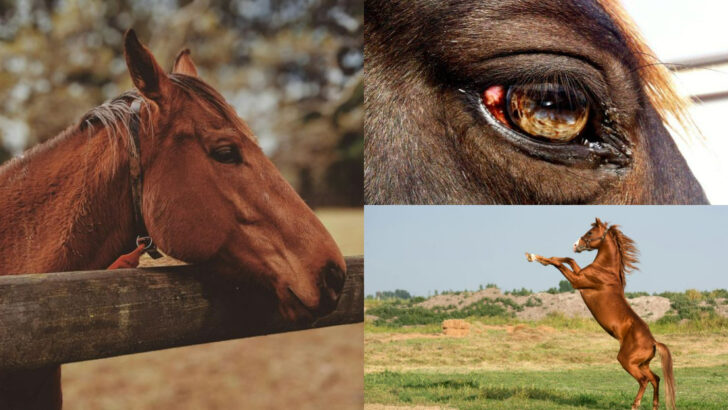Understanding the emotional state of your horse is essential for any equestrian. Knowing the signs that your horse is happy and feels secure can improve your bond and ensure a fulfilling relationship.
Here are eight distinct clues that your horse is living its best life with you.
Relaxed Ears
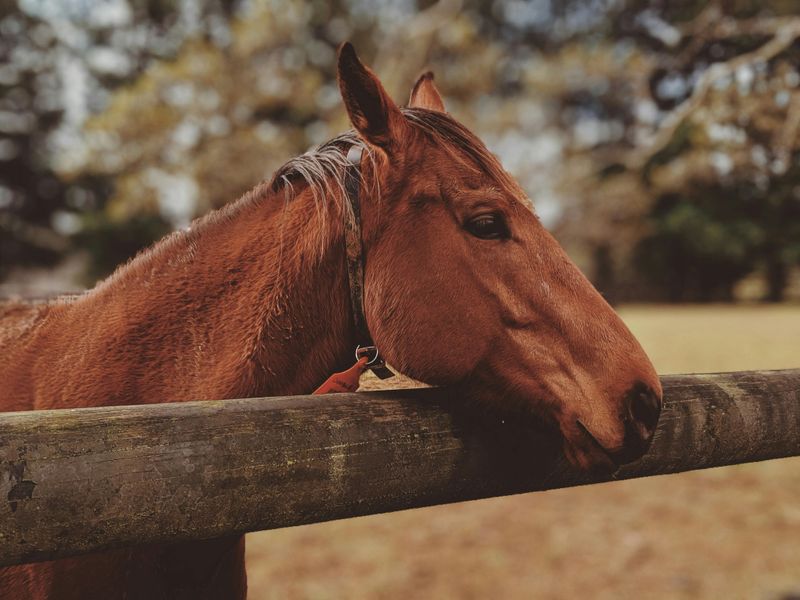
When a horse feels at ease, its ears will often be in a relaxed position, neither perked forward nor pinned back. This indicates comfort and a sense of safety.
In moments of curiosity, you might notice one ear swivels towards you while the other stays attentive to the environment. Such relaxed ears are a positive sign.
Horses respond to their surroundings, and relaxed ears show they trust their environment. Observing this subtle gesture can provide insights into your horse’s emotional state.
Soft Eyes
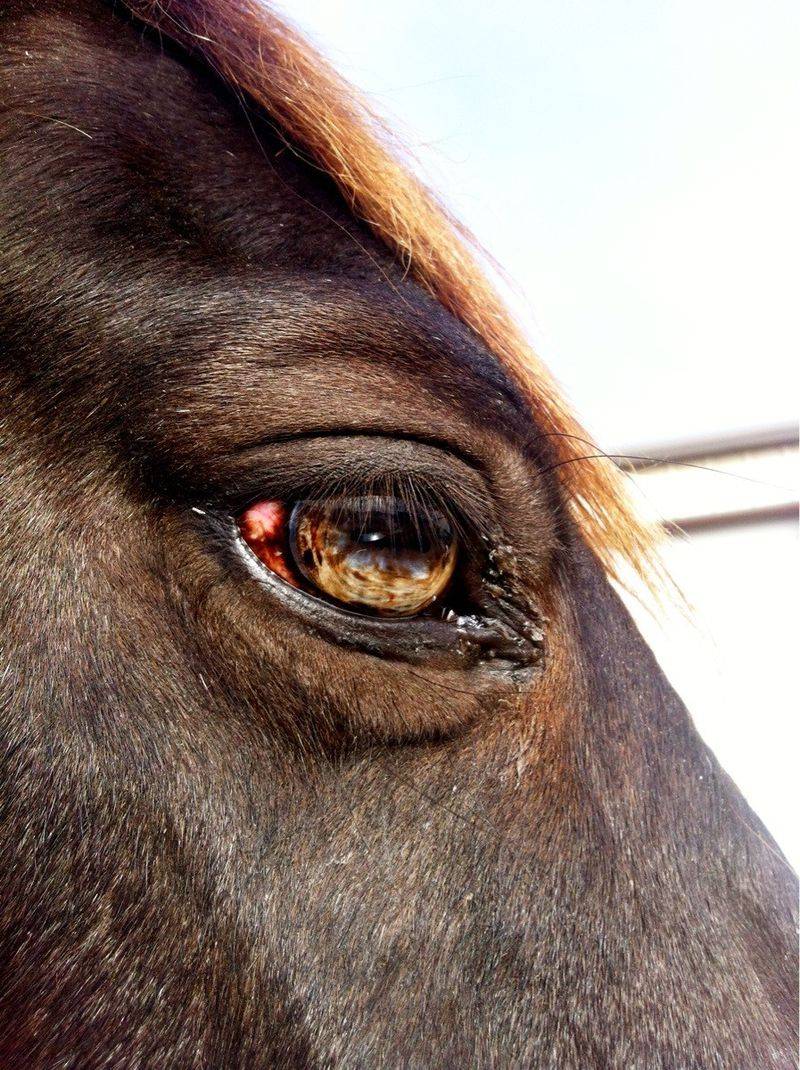
A horse with soft, gentle eyes is often a happy one. This expression indicates a calm and content demeanor, free from stress or fear.
When a horse is relaxed, the muscles around their eyes will appear soft, and there won’t be any visible tension. Horses with soft eyes are usually more approachable and open to interaction.
They are not on high alert and feel secure in their surroundings, displaying trust in their handlers and environment.
Curious Behavior
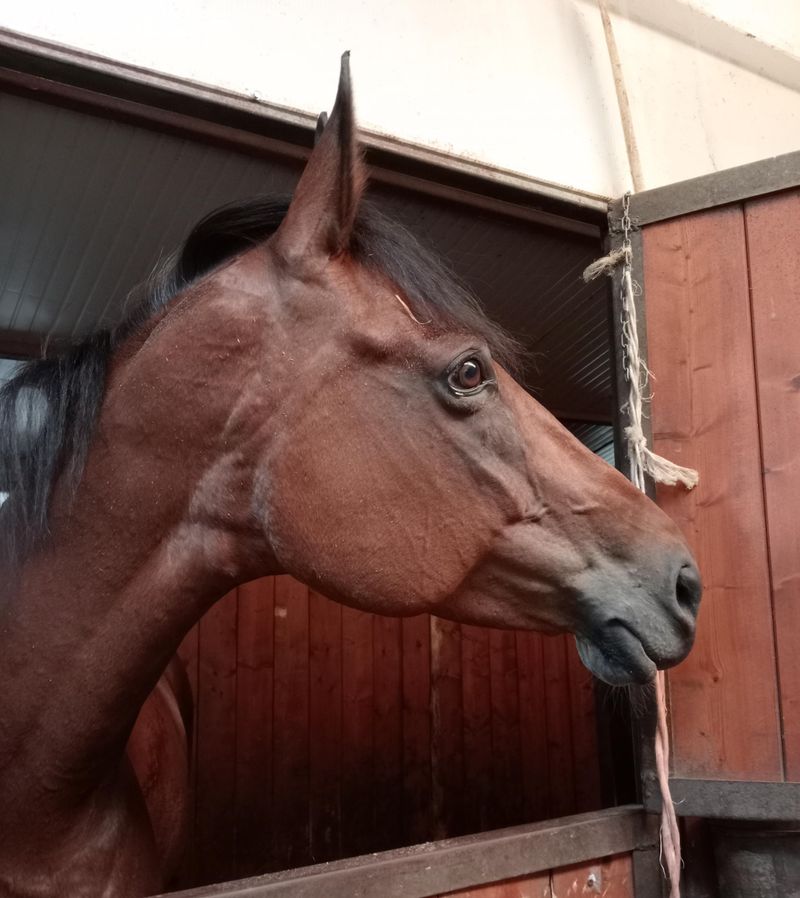
Curiosity in a horse is a wonderful indicator of happiness and comfort. A horse that feels secure will explore its surroundings, often nuzzling or investigating new objects or people.
This behavior shows a willingness to engage and learn about the world around them. A curious horse is a confident horse, not held back by apprehension.
Providing an enriched environment can further encourage this natural curiosity, enhancing their well-being and satisfaction.
Calm Tail
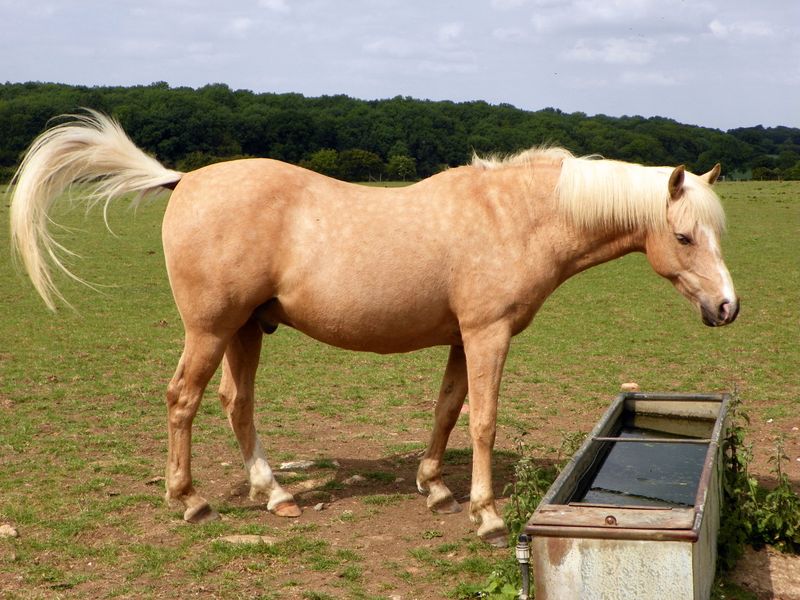
A calmly swaying tail signals contentment and relaxation in horses. Unlike a tail that’s flicking sharply, a gently moving tail means the horse is at ease.
This behavior often accompanies grazing or resting, where the animal feels no threat. A still, relaxed tail is another indication of a stress-free environment.
Observing your horse’s tail movements can help you gauge their comfort level, ensuring that their living conditions are optimal for happiness.
Steady Appetite
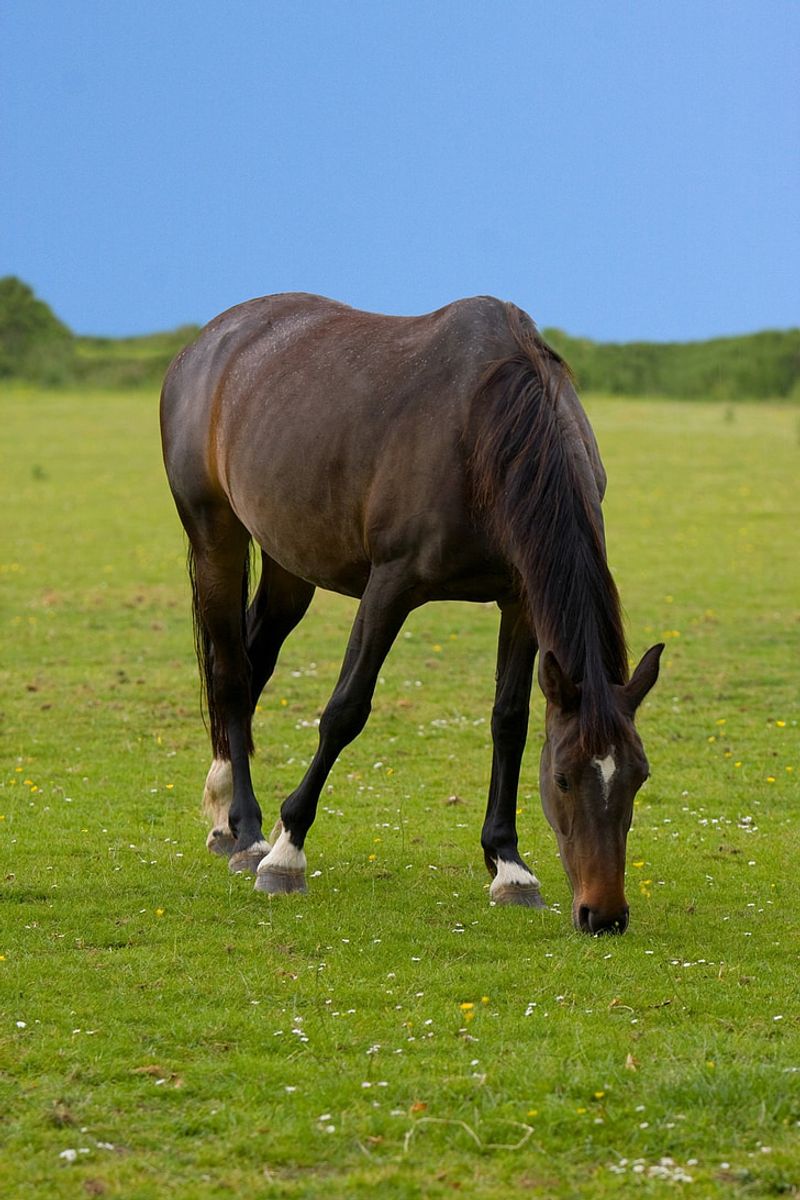
A healthy, consistent appetite is a sign of a horse’s good mood and contentment. When horses are happy, they eat regularly and with enthusiasm, enjoying their feed and hay.
Appetite changes can indicate stress, so it’s vital to monitor their eating habits closely. Regular feeding routines also contribute to their sense of security and satisfaction.
Ensuring your horse’s diet is both nutritious and enjoyable can significantly boost their overall happiness and health.
Playful Energy
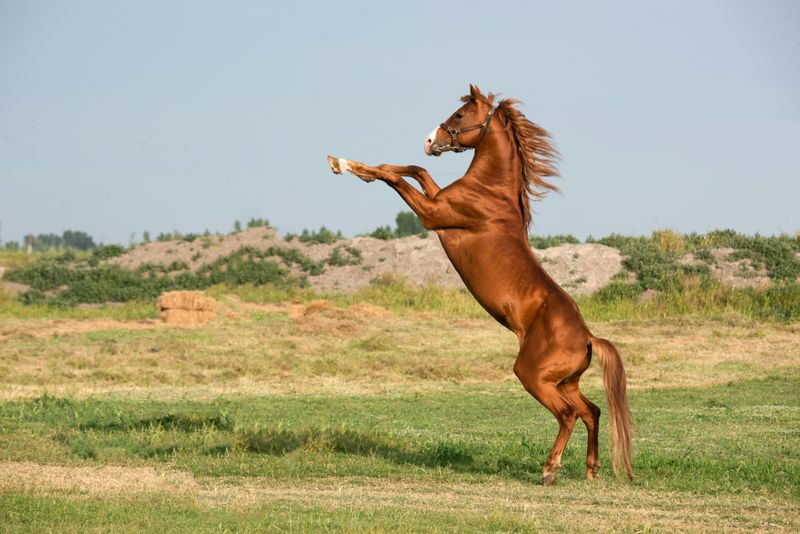
Playfulness is a hallmark of a happy horse. When horses feel good, they often express it through play, kicking up their heels or engaging with companions.
This behavior demonstrates that they are comfortable and safe enough to let their guard down. Providing ample space and opportunity for such expression can greatly contribute to their joy.
Observing play can also give you insights into their social relationships and overall well-being.
Willing Cooperation
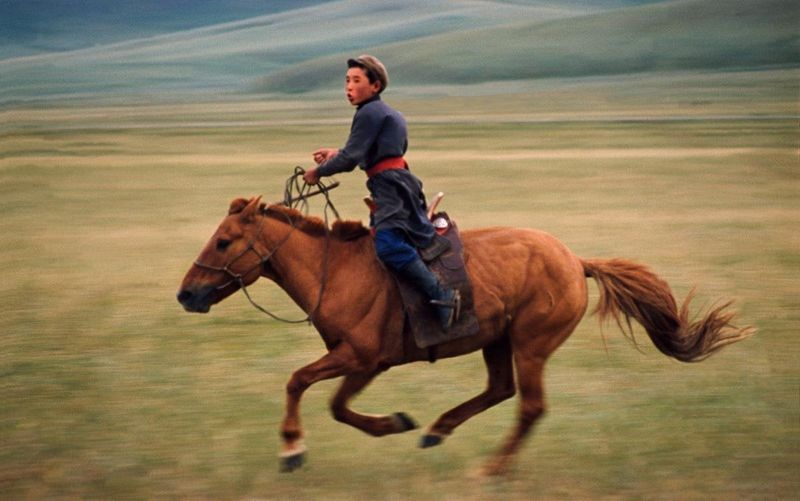
When a horse willingly cooperates during training or handling, it’s a clear sign of trust and happiness. Such cooperation indicates that the horse respects and feels secure with its handler.
This trust is built over time through consistent, gentle training methods. A cooperative horse is more likely to enjoy activities and engage positively with humans.
Building this rapport is essential for a harmonious human-equine relationship, fostering both happiness and trust.
Comfortable Resting Posture
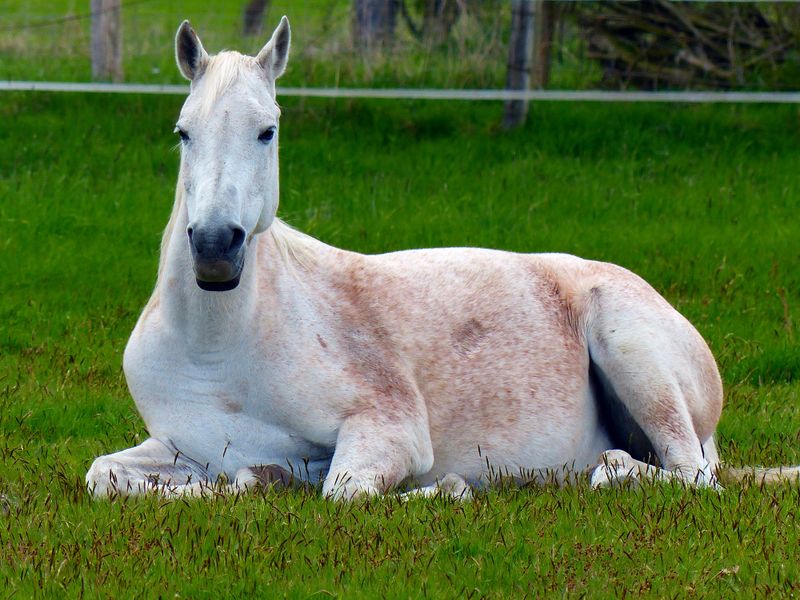
A horse that feels safe will comfortably lie down to rest, an indication of complete trust in its surroundings. This behavior is a profound testament to their sense of security, as lying down is a vulnerable position.
Horses that are truly at ease will often rest with other horses nearby, forming a supportive group. Observing such behavior is a positive sign, demonstrating that your horse is content and feels protected.

